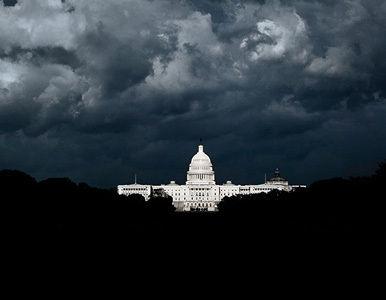
A Freshman Democrat from California has introduced legislation to allow members of Congress to vote from their districts, instead of in Washington. The proposal, from Rep. Eric Swalwell, would create a “mobile Congress,” allowing Members to vote over a secure connection on generally non-controversial pieces of legislation.
At first glance, it seems kind of ridiculous. Its real problem, however, is that it doesn’t go far enough. It well might be time to specifically bar Members from entering DC and cast all their votes from home. With modern communications there really is no need for them to physically be in DC to conduct business.
For 230+ years, we’ve tried it the traditional way, with column halls and meeting rooms and long stretches of face-to-face legislative business. For this we’ve gotten $16 trillion in debt, an overbearing tax code and a federal government that has wormed itself into virtually every nook and cranny in our lives. How much worse could a tele-Congress be?
There are, though, some real benefits. Members would face their constituents every night after they’ve cast votes. They would receive real-time feedback on their positions. It would be much harder for lobbyists and special interests to develop close, personal relationships with the Members. Lobbyists could still provide the information and data that serves a vital function in the legislative business, but without the cozy, potentially corrupting collaboration.
Another upside, especially for conservatives, is that they would probably do a lot less legislating. The unspoken secret of legislative sessions is that a large portion of it is “make work” time-killing. Every session there are a couple big things that need to get done, like the budget or a highway. There might be a couple more issues that arise due to events, but really nothing else that is urgent.
While those big things get sorted out, lawmakers simply work to fill the time with smaller bits of legislation. They’ll tweak part of the code or make some changes to an existing federal program. Some unknown percentage of laws our on the books simply because lawmakers had nothing else to do.
Consider that in Texas, the second biggest state in the country, the state Legislature meets only once every two years. The state’s economy is thriving and its fiscal house is in order, without the constant tweaking of its lawmakers. If someone were to run a regression, in fact, I think there would be a direct relationship between the number of days a state’s legislature met and the state’s overall economic and fiscal health.
Sending Congress home permanently may be the change we can believe in.

COMMENTS
Please let us know if you're having issues with commenting.